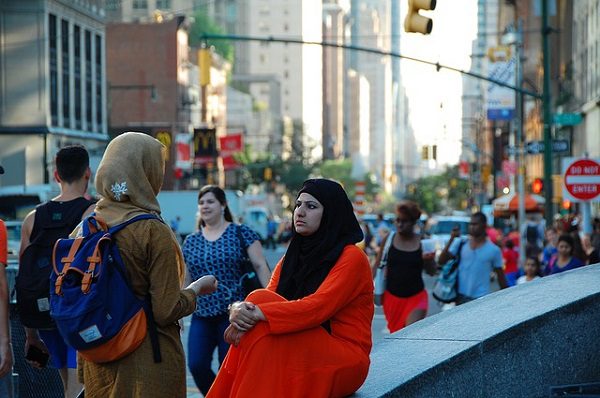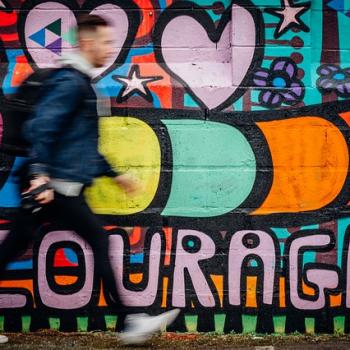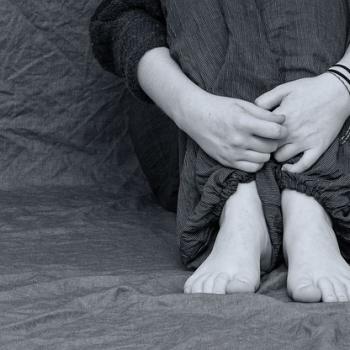This is Day 28 of the 2018 #30Days30Writers Ramadan series.
“How’s your Ramadan going?”
These four words form the question of the month that can be heard within most Muslim homes and community spaces. It’s an innocuous question, perhaps even seen as compassionate and empathetic. However, along with this question there comes an acceptable set of responses which can be categorized into the following themes:
- “The days seem so long this year.
- “It’s the fatigue that does it for me.”
- “I feel as though I’m not worshipping enough.”
- “Where has the time gone? I can’t believe Ramadan is coming to an end.”
Social media doesn’t help with this, as reflections tend to focus on spiritual health. Specific prayers and duas are constantly posted and re-shared, suhoor and iftar recipes are circulated, and photos of family and friends gathering around dining tables and in restaurants are abundant.
We are only privy to a small snapshot of others’ Ramadan realities, usually in the minutes before an iftar event or if we run into a friend where we are worshipping. Not only is time a barrier to a more in-depth and raw response, but so too is the expectation of what responses are acceptable to this generic question.
In other words, do we as Muslim communities have safe spaces to allow others to be open about how this month is really going for them?
Let’s also rewind back to before Ramadan started. On an “ummah-wide” basis, many Muslims entered this month with heaviness, as we mourned more innocent lives lost in Palestine, ongoing attacks on undocumented black and brown folks, and continuous police violence in many of our communities.
Gender-based violence intersecting with Islamophobia weighs down on the shoulders of many Muslim women; Muslim survivors of sexual violence continue to be victim-blamed and shut-down; and many Muslims are disillusioned by how their places of worship do not acknowledge their lived realities in the programs and spaces being curated.
Our own lives exist prior to and continue in Ramadan. Life is not linear, and in many ways, neither is Ramadan. At HEART Women and Girls, we acknowledge that Ramadan looks different for all of us. We have been highlighting the campaign #MyRamadanIs in honor of this basic yet very much under acknowledged fact: Our mental, physical and sexual health needs do not disappear this month and may even become particularly impacted.
There are individuals dealing with chronic illness or loss within their families; individuals struggling with mental illness; couples who are working through sexual dysfunction; individuals in abusive relationships that escalate during Ramadan; parents who struggle to find time for individual worship given the needs of their children; and many Muslims who struggle to find inclusive and safe spaces of worship that are free of judgement.
Along with blessings and mercy, Ramadan brings with it increased pressure to plug into community, Islam and spirituality in specific ways. Narratives around fasting, praying, mosque etiquette, relationships, health, and what Ramadan is supposed to look like can leave many of us feel like we’re falling short of the mark. Particularly, feelings of isolation, guilt, or shame often come up around health needs and realities this month.
As Ramadan ends, it may feel as though it’s too late. But we know that within Ramadan, nothing is too late. As recently posted by a friend on Instagram, “It’s not how you begin that matters, it’s how you end.” If this is the case, what can we do to foster rahma in these last few days of Ramadan, and beyond?
- Rephrase the question to broaden the framework. Generic questions such as “How’s your Ramadan going?” become tiring to answer given that they’re often posed by more than one person. As a result, responses tend to become shortened and scripted. Try the following questions instead: “How have you been since I last saw you?” “I remember you mentioned you were dealing with X, how are you doing?” “Have you been finding time for yourself this month?”
- Bring in your own vulnerability. You don’t need to share excruciatingly personal details with everyone you meet, but a safe space can only be created by those willing to drop the mask, so to speak. Set the stage for an honest conversation, and you’ll be surprised at what follows. “It’s been a challenging month, trying to manage my own self-care while dealing with heavier work demands. How have you been coping with everything you do?”
- Take time to truly connect. Understand that you can’t gain the full picture of someone’s reality during brief interactions – during which many of us try to place our best filtered picture forward. Attempt as much as you can to take time to truly connect with others in ways that are meaningful than a brief pre-iftar Q and A. Make time for personal 1:1 iftar or suhoor meals with loved ones or friends for more personal conversations.
- Reach out if you need support. Recent news prove that we do not know the lived realities of those around us. Many of us spend more time connecting virtually than in person, and safe spaces are far and few between. Shame and stigma about mental and sexual health continue to prevent education and awareness efforts.
Reach out if you don’t hear from someone in a while – you don’t need to pose a question. “I was thinking of you and wanted to check in,” can mean more than you know.
#MyRamadanIs different than yours. I pray that your Ramadan has been and continues to be the best for your individual and lived reality.













